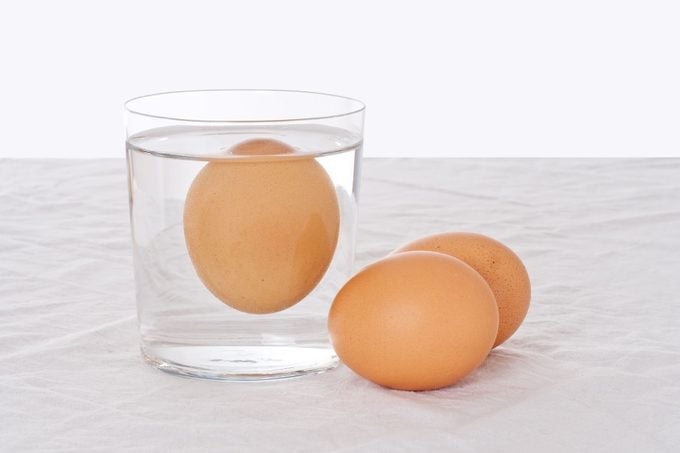You’ve Been Storing Eggs All Wrong—Here’s the Right Way
Updated: Mar. 12, 2024

My brain was scrambled after finding out I was storing my eggs all wrong.
Ever wondered what to do with those eggs you just brought home from the store? What about the farmers market? Apparently there’s a proper way for storing eggs—from the location in the fridge and what container it should stay in, to which way the eggs should be facing. We break it all down for you so you never have to worry if your eggs are still good to use in your favorite egg recipe.
While you’re at it, find out the difference between brown and white eggs.
Editor’s Tip: Eggs have a surprisingly long shelf life, check how long do the eggs last.
Storing Eggs

Refrigerated vs. room temperature
Eggs bought from the store should be immediately stored in the refrigerator. According to the U.S. Department of Agriculture (USDA), leaving eggs out at room temperature for more than two hours can cause them to sweat, potentially allowing bacteria to grow.
In the U.S. you may find unwashed eggs at the farmers market since the USDA does not require them to be washed. These eggs are fine to be stored at room temperature, but should be washed before eating. If you decide to wash your farm fresh eggs immediately after picking them up from the farmers market, store them in the refrigerator.
Editor’s Tip: Check this guide if label terminology like cage-free vs. free-range eggs confuses you at the grocery store.
Where to store your eggs
While your fridge might come with a handy egg compartment on the door, the USDA recommends avoiding storing eggs there. Storing them on the fridge door doesn’t allow the eggs to stay at a consistent, cool temperature. Instead, keep your eggs in the coldest part of your fridge—usually towards the back or bottom shelf.
You’ll also want to keep those eggs in the carton they came in. This is useful for two reasons. For one, the carton holds the best by date, ensuring you’ll know when the eggs are good by. Secondly, keeping eggs in their carton and concealed reduces the chance of them being exposed to any food flavors from nearby groceries and protects them from getting cracked.
Keep your eggs super fresh
Besides focusing on getting a container of eggs home and into the fridge without breaking one, it turns out we should be paying a little more attention to how we’re storing them once we get home.
According to TikTok user theshilohfarm, there is a right way when storing eggs…and it’s probably not how you’ve been doing it. Eggs should be stored with the pointed end down and the blunt, more rounded side facing up. Why? It will keep the yolk more centered inside the egg and will help your eggs stay fresh longer.
A benefit of a more centered yolk? Better looking deviled eggs.
How long do eggs last?

How long eggs last can vary, but it’ s always a good rule of thumb to stick by those sell by dates. Typically, eggs bought from the store can last from four to six weeks refrigerated. Farm fresh eggs, on the other hand, can last up to two weeks at room temperature, unwashed.
How to tell if an egg is still fresh
Not sure if your eggs are fresh? The “float test” is a quick and easy way to see if those eggs in your refrigerator are still safe to use in recipes. Simply drop the egg in a cup of water and see if it sinks or floats. If it drops to the bottom of the cup of water, it’s safe to use. However, if it floats, toss them out as they’re no longer good for consumption.
Freezing eggs
Make meal prepping breakfast easier by freezing your eggs. Cook scrambled eggs as you normally would, then let it cool down. Then, store them in the freezer for up to a year. We don’t recommend freezing hard-boiled eggs as they’ll tend to have a rubbery texture after being thawed.
For storing eggs without cooking them ahead of time, you’ll want to remove the egg from its shell. From there, you can even separate the yolk from the egg whites and freeze the two separately.
